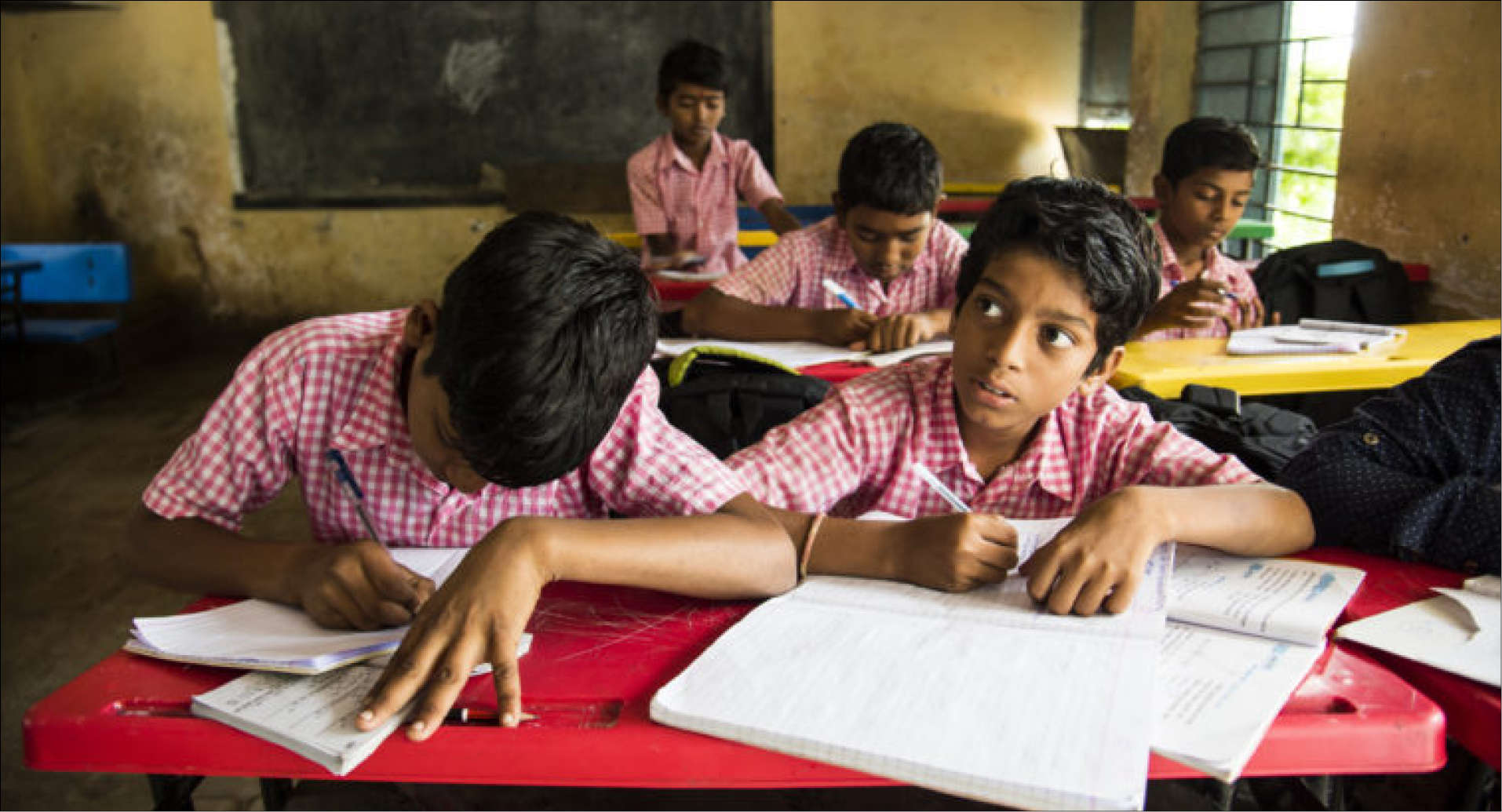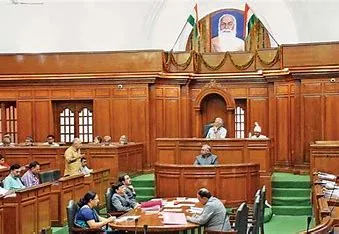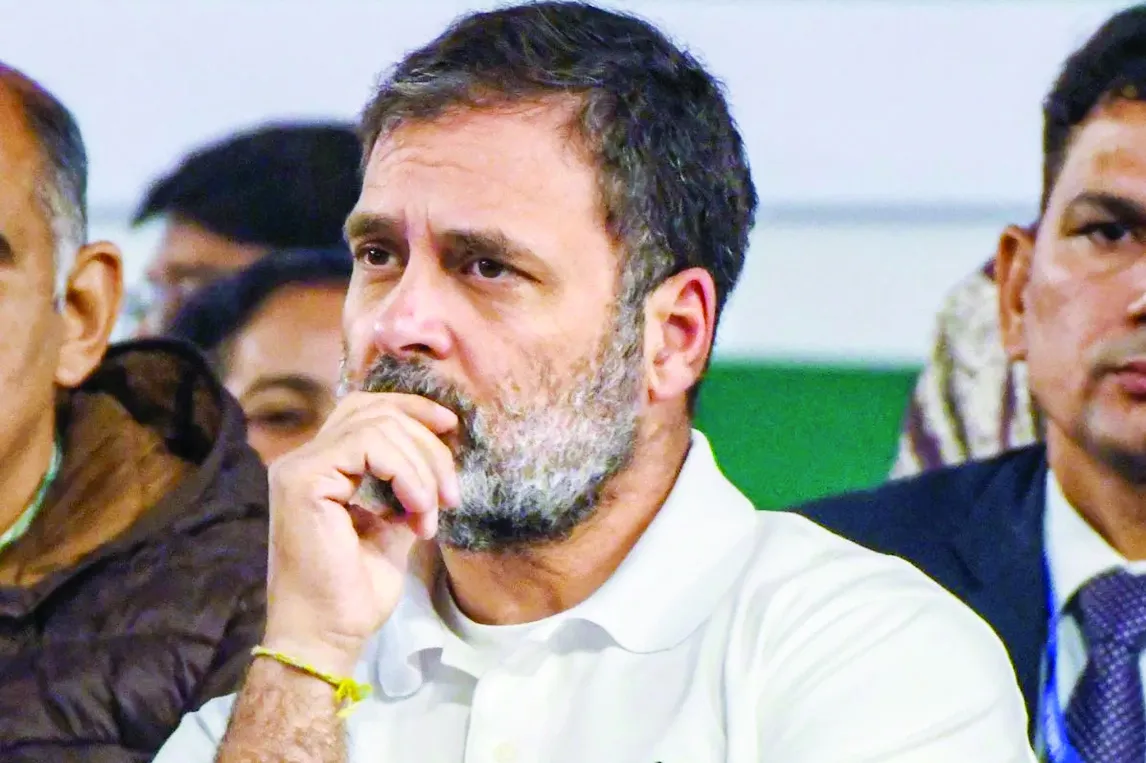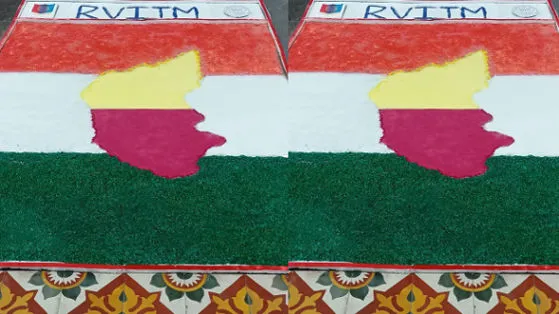Children are the foundation on which our future will be built. Therefore, for nation-building, children will have to be nurtured in a way that they grow up to be conscientious and well-developed, can take pride in themselves and their heritage, and are ready to contribute to the progress of the country. For this they need to be given the ‘right’ education through a well-balanced curriculum in schools. However, an ironical situation has developed today for the want of value-based learning in children’s education and its curriculum framework, particularly when assessed from a nationalistic/Indian perspective.
Before we delve into what is not right with regard to children’s education, it would be germane to understand its framework, denominated as the National Curriculum Framework (NCF). NCF, provided for school education, is a detailed outline of the guiding policy and objectives of education, the subjects/courses taught to school-going students, the choice of lessons/texts incorporated, and the pedagogy to impart these.
It is the National Council of Educational Research and Training (NCERT), an institution under the Ministry of Education, which bears the onus of designing the NCF. It also prepares books in light of the NCF. On the initiative of the Ministry of Education, NCERT set up a committee last year to review the NCF. Here, I would like to point out the reason for the proposed review. An obvious one is that with the numerous developments in various fields it is the need of the hour that students keep abreast of the same. Therefore, the school curriculum must be revised to keep pace with new developments. It’s not without reason that this kind of exercise is initiated every 10 to 15 years.
If we look at the history of NCF’s revisions, we find that it has been revised four times so far: in 1975, 1988, 2000 and 2005. So, the last changes were made 16 years ago. However, in 2000, during the NDA government, the amendments, which had been made after a long and meticulous process under the mentorship of Prof. J.S. Rajput, the then NCERT director, had not gone down well with the Marxists and “liberal academics” associated with the Congress-Left alliance government. Hence, soon after forming the government in 2004, a new NCF was framed at lightning speed in 2005, just five years after the last revision!
On the perusal of the NCF-2005 document, no concrete reason for the changes is apparent. It is cursorily mentioned, “The review of the National Curriculum Framework, 2000 was initiated specifically to address the problem of curriculum load on children.” But contrary to its stated purpose, the burden and complexity has actually increased manifold. Besides, many important points incorporated in the NCF-2000 were deliberately omitted under “ideological pressure”.
If one looks upon the ‘Guiding Principles’ and ‘Objective of Education’ in the NCF-2000, it is found that along with placing equal importance on value education, character building, patriotism, the spirit of national unity and integrity, ‘Fundamental Duties (enshrined in the Indian Constitution by Indira Gandhi)’ were made ‘core components’ of the same. The Fundamental Duties, among others, include abiding by the Constitution, respecting the national flag and the national anthem, maintaining the unity and integrity of the nation, serving the nation, valuing and preserving the rich heritage of our composite culture, etc.
There is little need to iterate how important the above mentioned features are for any country. Unfortunately, under the vested ideological pressure, most of these were pretermitted in the NCF-2005 in the name of a “new” and “child-centered approach”, “learning without burden”, “making learning enjoyable” and a “joyful experience”. However, if one looks at the books put together in the light of NCF-2005, one finds the opposite. For example, in the Social Studies book ‘Social and Political life’ for children of Class VI, who are around 10 or 11 years of age, complex concepts such as “stereotypes” and “prejudice” have been discussed, subjects which such minds would barely comprehend. Similarly, taxing and complex questions as, “What do you think living in India with its rich heritage of diversity adds to your life?”, “Do you think the term ‘Unity in Diversity’ is an appropriate term to describe India?” “What do you think Nehru is trying to say about Indian unity in the sentence quoted above from his book The Discovery of India?” have been asked in the same book. I must repeat here that these questions and concepts are not meant for students of Classes IX, X, XI or XII, but for children from the sixth grade. Can a 10 or 11-year-old fathom such complex socio-psychological and socio-political concepts properly? It is an issue which requires careful deliberation. Another pertinent question which arises in this context is whether negative concepts like ‘prejudice’ and ‘stereotypes’ should be taught to tender minds at this early stage? My contention is not with teaching these concepts as part of the curriculum, for students must understand our social system and its shortcomings, but I would recommend it for higher classes, when the mental growth and the resultant power of comprehension of the pupil enable them to view and assess these issues in totality.
It is a task of great responsibility, and must be determined likewise, to decide what children should learn and at which stage. An example which I would like to extend here is that of sex education. The content to be included in ‘physiology’ or ‘sex education’ and the age to be taught the same demand careful and diligent exercise of wisdom. In the name of necessity, ‘sex education’ or ‘physiology’ cannot be taught to sixth graders. In a blind emulation of the West, subjects cannot be taught as per Western requirements, as cultural values and grounding of the mentioned societies varies vastly.
Sadly, the syllabus for history also suffers from the same impertinence where the glorious and rich traditions of ancient India have been ignored, undermined or distorted. For instance, the Vajji state in ancient India was a republic or a kind of democracy. According to renowned historian K.P. Jaiswal, the concept of democracy in ancient India is older than the Roman or Greek concepts of democracy. But in the NCERT book “Our Pasts-1”, there is a mysterious silence on Indian (Vajji’s) democracy except for a fleeting mention that Vajji had a ‘gana’ system, without making it clear that the ‘gana’ system was a form of democracy. The same text, however, is quick to take cognizance of and categorically mention that there had been democracy in Athens, Greece 2,500 years ago.
Similarly, while discussing the name of our country, the denomination ‘India’ has been subtly given a sort of primacy over ‘Bharat’, mentioning the name ‘India’ first and ‘Bharat’ as the second one. It must be noted that the nomenclature of ‘Bharat’ came at least a thousand years before ‘India’. The word ‘Bharat’ was mentioned at least 3,500 years ago in the Rig Veda, whereas ‘India’ was first used 1,000 years hence by the Greeks.
To cite another example from “Our Pasts-1”, the fourth chapter is titled, unscrupulously, as “What books and burial tell us”. It must be known that this chapter deals mainly with the time of the great Rig Veda. Shouldn’t the same qualify as the chapter title then? Also, there is no mention about the highly regarded status of women at that time. There is indeed a passing reference in a single sentence, which states that “a few (hymns) were composed by women”, but there is no mention that women at that time had various other rights along with the one to study the Vedas. Eminent Marxist scholar of Hindi Ram Vilas Sharma, unlike other Marxists, writes that a large number of women composed the ‘Shuktas’. Romashan, Lopamudra, Ghosha, Appala, Savitri Surya, Kamayani, Shraddha and Yami Vaiswati are a few to name. The fact that they composed Vedic hymns clearly indicates that women had the right to study. In fact, women had many other rights, as they used to fight in battles as well.
Similarly, a discussion on Emperor Skandagupta, who repelled an invasion by the tyrant Indo-Hephthalites (Hunas), Anangpal Tomar of the medieval period, credited to have established Delhi, and the subaltern king Maharaja Suheldev, who defeated the nephew of Mahmud Ghazni, is missing.
One can find hundreds of subtle references, full of fraudulent or incomplete narratives, in history, social studies and literature books. These discrepant narratives, instead of promoting patriotism or a sense of national pride and unity, are bound to breed negative feelings and an inferiority complex in children, particularly in the context of their nation.
In addition, NCF-2005 gives little importance to ancient Indian knowledge and science, philosophy, Ayurveda, yoga, astronomy and metallurgy. These subjects are missing completely from the current books. ‘Vedic Mathematics’, known to increase a pupil’s computational capacity manifold, and is available at private tuitions or on TV channels as a paid service, finds no mention in the curriculum too.
Thus, a review is in order to incorporate various social, economic, scientific and technological developments made in the last 16 years and set right the anomalies mentioned above, with an aim to expose school-going pupils to the latest and correct knowledge that the world has to offer. Towards this objective, a competent academic leadership is necessitated, in the absence of which the growth of school-going children in India will continue to be compromised as they will remain deprived of a well-balanced curriculum even after seven years of a ‘nationalist government’ in existence.
The author is an academician teaching at the Central Department of Hindi, Delhi University. He has also taught in various US universities. He can be reached @NiranjankIndia. The views expressed are personal.






















